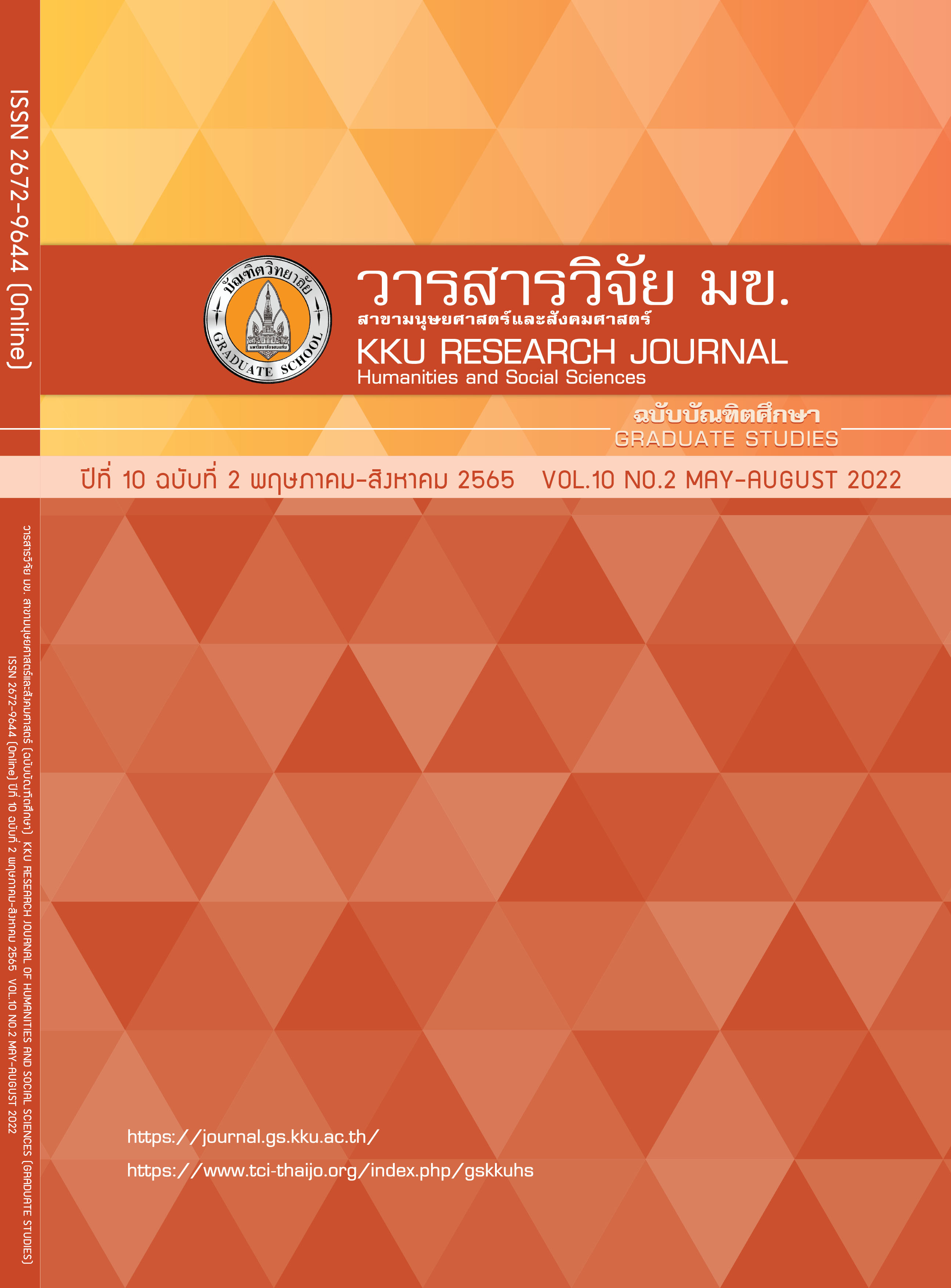Learning Outcome of Competency-Based Instruction of Grade 5 Students
Keywords:
Competency-Based Instruction, Reading and Writing, Analytical thinkingAbstract
This study learning outcome aimed to 1) compare the reading and writing on Read, Think, Write, Learn to use Unit of grade 5 students before and after learning by Competency-Based Instruction 2) compare the reading and writing on Read, Think, Write, Learn to use Unit after learning by Competency-Based Instruction against the 70 percent criterion and 3) compare students' analytical thinking skill before and after the lessons integrated by Competency-Based Instruction. The research sample included 5 of grade 5 students from Bansaiyong School in the second semester of the academic year 2020, received by cluster random sampling. The research instruments were 3 lesson for the total of 12 hours, reading test, writing test, analytical thinking skill test. Statistics used for data analysis were mean, percentage, standard deviation and t-test. The results of this study learning outcome revealed that 1) Reading and writing of grade 5 students from competency-based learning management after learning was significantly higher than that before learning at the .05 level. 2) Reading and writing of grade 5 students from competency-based learning management after learning they met the criteria of 70 percent at the .05 level. and 3) Analytical thinking from competency-based learning was significantly higher than that before learning at the .05 level.
References
Office of the Education Council. Guidelines for Developing Competency Learners at Fundamental Education. Bangkok: 21century; 2019. Thai.
McClelland DC. Testing for Competence Rather Than for Intelligence. American Psychologist. 1973; 28(1): 1-14.
Ministry of Education. Competency-Based Curriculum. [Internet] 2021 [cited 2021 December 7] Available from: http://www.cbethailand.com/ฐานสมรรถนะ/. Thai.
Ministry of Education. Basic Education Core Curriculum B.E. 2551 (A.D. 2008). Bangkok: The Agricultural Co-operative Federation of Thailand; 2008. Thai.
The National Institute of Educational Testing Service (Public Organization). Ordinary National Education Test of the academic year 2017-2019. [Internet] 2019 [cited 2020 November 1] Available from: http://www.newonetresult.niets.or.th. Thai.
Office of the Education Council. Competency-Based Instruction and Active Learning. Bangkok: 21century; 2020. Thai.
Susaorat P. Thinking Development. Bangkok: 9119 Technic Printing; 2008. Thai.
Luenam K. Educational Research Methodology. Nakhon Ratchasima: Korat Marketing and Production; 2018. Thai.
Tanya S. Research Methodology in Education. Nakhon Ratchasima: Faculty of Education Nakhon Ratchasima Rajabhat University; 2013. Thai.
Wongratana Ch. Techniques of using Statistics for Research. Bangkok: Srinakharinwirot University; 2010. Thai.
Chanphen N. Principles of using Thai language. Bangkok: Genesis MediaCom; 2014. Thai.
Sripa S. A study on Analytical reading Achievement of Mathayomsuksa 1 Students by Using the analytical Reading skill Exercises [MEd thesis]. Bangkok: North Bangkok University; 2017. Thai.
Khattiya S. Science of Writing. 2nd ed. Bangkok: Radio Station of Thailand for Education; 2009. Thai.
Kladsuntea W. A Study of Creative Writing Ablity in Thai Subject and Aatisfaction in Learning of Prathomsuksa 4 Students by Using CIRC Method with Creative Writing Drills [MEd thesis]. Nakhon Ratchasima: Nakhon Ratchasima Rajabhat University; 2010. Thai.
Khocharin Ch. The Development of a Series of Education 5W1H in Order to Encourage the Thought and Critical Thinking Rrgarding Thai Subject at Primary Level [MEd thesis]. Nakhon Si Thammatat: Nakhon Si Thammatat Rajabhat University; 2012. Thai.
Downloads
Published
How to Cite
Issue
Section
License

This work is licensed under a Creative Commons Attribution-NonCommercial-NoDerivatives 4.0 International License.




